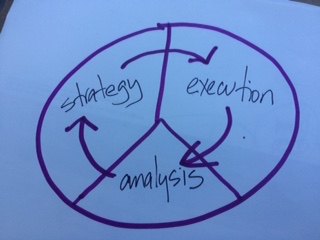I’m guessing that if you’re interested in getting your company “investor ready” it’s because you are looking for outside cash.
There are many reasons a viable company needs outside cash:
- You need to purchase equipment to expand your business.
- Your business is profitable, but you need to even out periodic negative cash flow.
- You want to sell the company.
- You want to attract top-notch key employees.
- You’re a start up and need to raise capital.
While these reasons are different, they all have one thing in common: your company needs something from the outside. It’s your job, with the help of your CFO, to provide those potential sources of cash with the information they need in the way that they want it. You have to show them that you know what you’re doing. It helps to talk their language.
What you need to have in place to call yourself “investor ready:”
- a solid finance and accounting team
- full charge bookkeeper to handle the day-to-day operations and record-keeping in a complete, accurate and timely way
- a tax preparer (CPA or EA) to file accurate tax returns in a timely fashion and to give you tax advice
- a CFO to oversee all the financial operations and coordinate between the bookkeeper, the CPA/EA, you, and the bank or investors
- documented business processes in the form of an Operations Manual
- job descriptions
- processes
- procedures
- a solid accounting system
- pick a system you can grow into so that you have your financial and accounting history in one system.
- a vision for the future, i.e., business plan
- Marketing plan
- Financial projections
- income and payroll taxes filed on time
- current, complete, and accurate financial reports
- key management positions filled with experienced people, either as staff or consultants.
In fact, these best practices apply to all businesses, no matter what their exit strategy, how long they’ve been in business, or how many employees they have. However, not all business put in the effort to put these in place. That’s why some businesses fail in the first five years, some struggle, and some fail to thrive. But if your business wants to grow and needs cash from an external source, then these are essential for success.
There are two ways to get the cash you need to scale your business: debt or equity.
Debt financing: This is about borrowing money and repaying it with interest.
Equity financing: This is about selling shares of your business, thereby cutting investors in on the ownership of the business, and sharing the profits.
There are pros and cons to each. What it all comes down to is what’s the best deal you can negotiate at the time you need the money and with whom. As the fabulous Annie Savoy said in Bull Durham, “…it’s all a question of quantum physics, molecular attraction, and timin’.”
Types of investors:
- Friends & family
- Partners
- Banks and credit unions
- Angel investors & venture capitalists
- Philanthropic foundations
- Community investment funds
- Accelerators & incubators
Let’s talk here about #3, banks and credit unions. I’ll cover the others later in other posts.
Banks, where your debt financing will come from, are more risk-averse than investors. And they rely more on your history of past performance and what assets you have to put up as collateral. This is also cheaper money than compared with what you’d get from an angel or VC; those types of investors want an ownership interest and a large return on their money. This is a good solution when you have collateral and a profitable business.
Banks want collateral up the wazoo. And if you don’t have collateral in the business, like equipment or real estate, they want a personal guarantee from the owner(s) using their personal assets, like the house.
Banks and credit unions are the best source of cash when you have collateral. Investors serve a different purpose and I’ll talk about them next week.
What your CFO does is provide the financial information the bank needs in the format the bank wants it in. For starters, they will want to see your tax returns and financial statements for the prior 2-3 years, budget and cash flow projections for the next 2-3 years, and a bunch of other supporting data (previous job history, personal assets, spouse’s income and assets, etc.)
In order for you to provide them with your tax returns, you have to have filed them, which means you have to have prepared them, which means you have to have an accounting system in place and a bookkeeper to have tracked the data. Your CFO is the best person to coordinate and direct this process.
When you’re looking to get your business “investor ready” I can help. Got questions? Pop ’em into the comments below and we’ll get ‘her done! And remember: there are no stupid questions. Never.



 So you’ve sold an asset…how do you account for it?
So you’ve sold an asset…how do you account for it?



